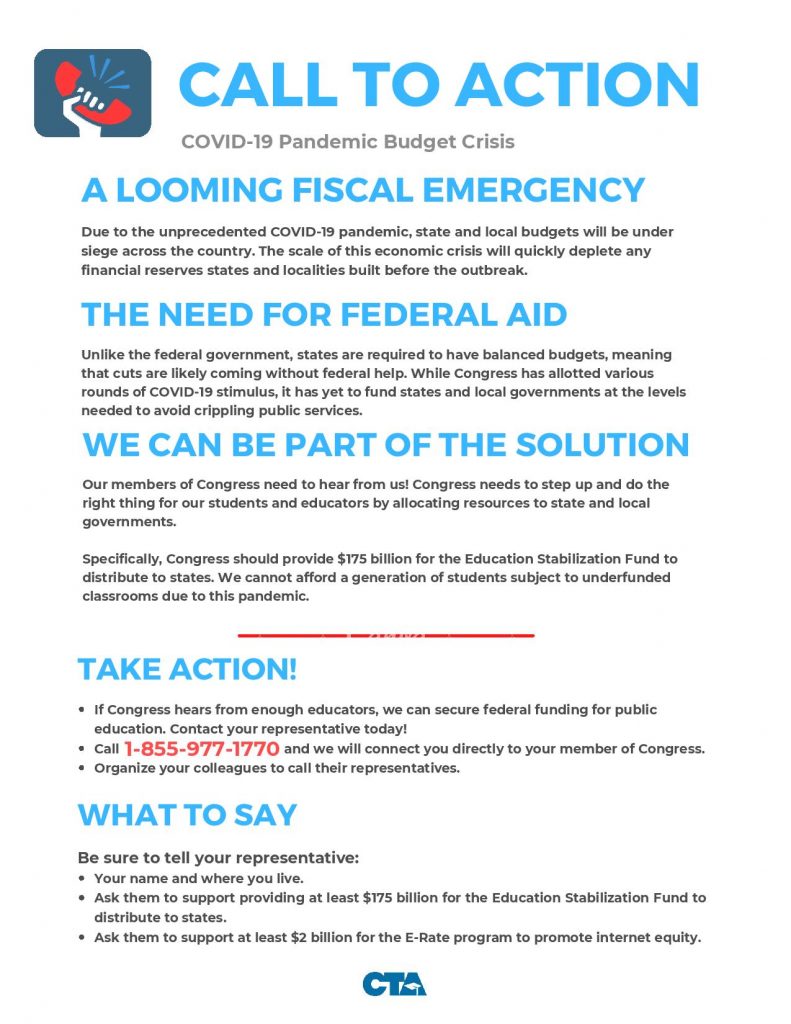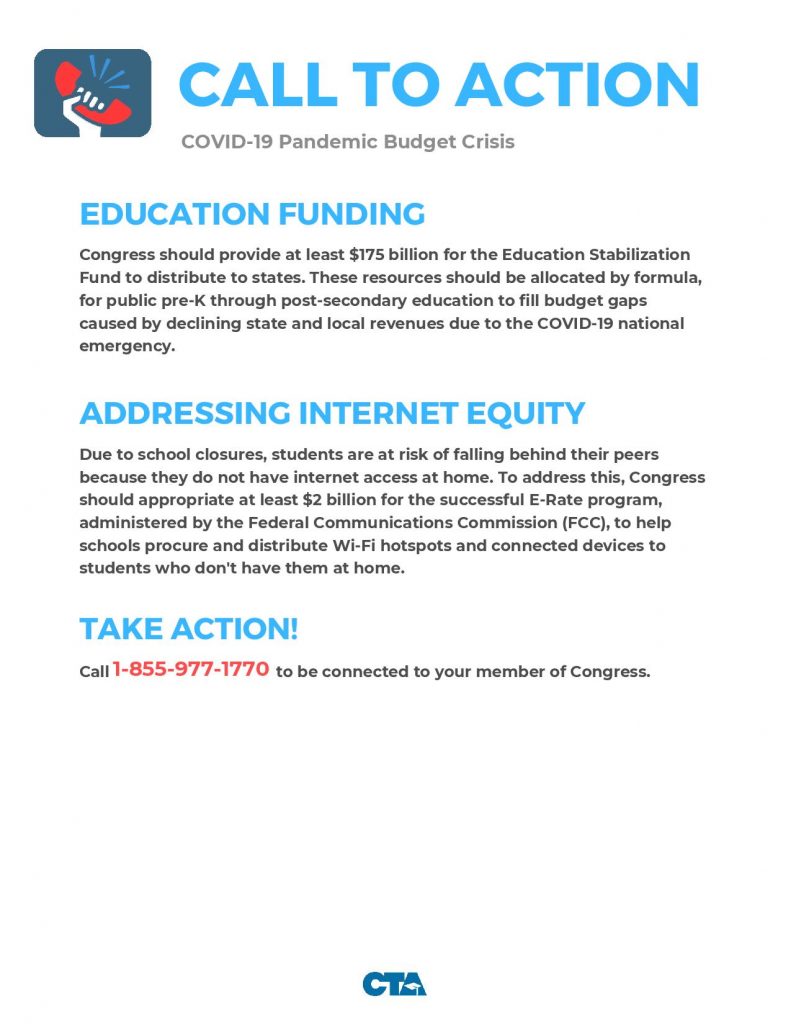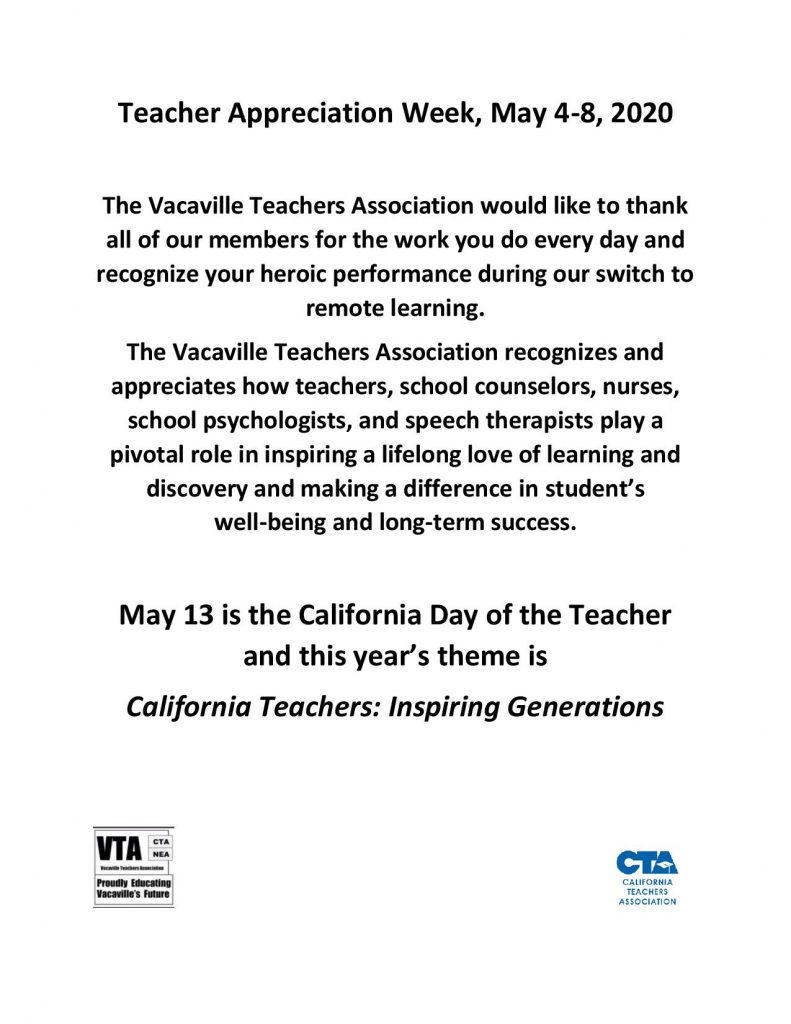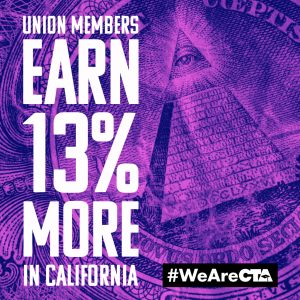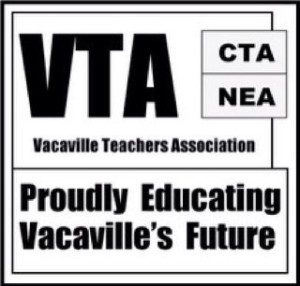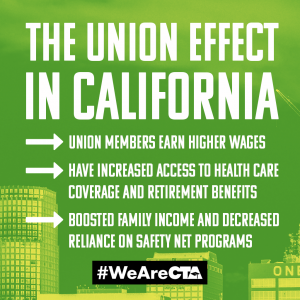Our members of Congress need to hear from us! Congress needs to step up and do the right thing for our students and educators by allocating resources to state and local governments.
Specifically, Congress should provide $175 billion for the Education Stabilization Fund to distribute to states. We cannot afford a generation of students subject to underfunded classrooms due to this pandemic.
TAKE ACTION!
If Congress hears from enough educators, we can secure federal funding for public education. Contact your representative today!
Call 1-855-977-1770 and we will connect you directly to your member of Congress.
Be sure to tell your representative:
-Your name and where you live.
-Ask them to support providing at least $175 billion for the Education Stabilization Fund to distribute to states.
-Ask them to support at least $2 billion for the E-Rate program to promote internet equity.
